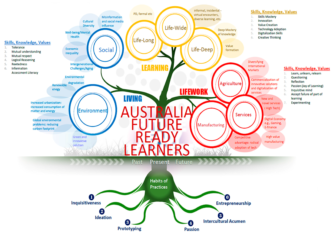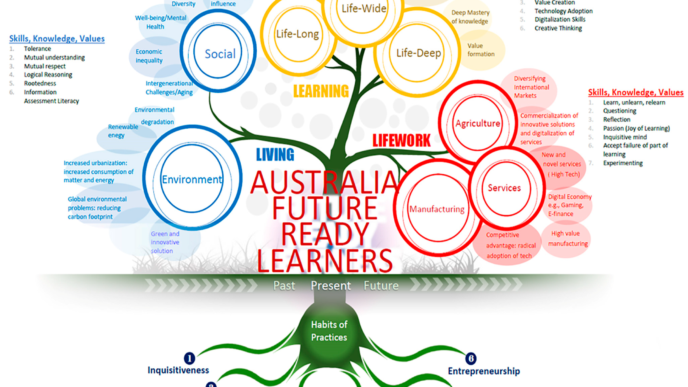Recently, a groundbreaking study published by the International Journal of Multidisciplinary Research and Growth Evaluation featured a full-length research article by Abdullateef Okuboye of Concentrix Malaysia, titled Process Agility vs. Workforce Stability: Balancing Continuous Improvement with Employee Well-Being in Global BPM. The study, which appeared in Volume 3, Issue 1, has been widely discussed because it directly addresses the paradox of how multinational corporations pursue agility and continuous improvement while simultaneously trying to preserve employee stability, morale, and psychological safety. In the context of rapid digital transformation and the aftershocks of the COVID-19 pandemic, this research provides a timely and authoritative analysis of organizational strategy.
Abdullateef Okuboye, an experienced business process management professional, brings both theoretical and practical expertise. His position at Concentrix Malaysia enabled him to observe firsthand how global companies adopt agile BPM systems and how employees respond to rapid cycles of change. This background gives him the authority to attest to both the benefits and risks of agility. Over the course of the study, Abdullateef Okuboye references empirical evidence, theoretical frameworks, and field data to show how organizations can integrate empathy and well-being into transformation strategies. He stresses throughout that leaders must balance speed with stability. As he states in the article, “Agility divorced from empathy can erode the very workforce it seeks to empower.”
The methodology of the study was comprehensive. Abdullateef Okuboye employed a mixed-methods approach, combining structured surveys of 300 employees from multinational corporations in sectors such as technology, manufacturing, healthcare, and services with semi-structured interviews and focus groups. The surveys measured process agility, leadership support, psychological safety, employee well-being, and retention intention using validated scales. Average scores (on a 1–5 scale) were 3.53 for process agility, 3.78 for leadership support, 3.27 for employee well-being, 3.05 for psychological safety, and 3.42 for retention intention. These results illustrate that although organizations are achieving agility and some leadership support, employee well-being and safety lag behind. Abdullateef Okuboye attests that these gaps reveal the fragility of workforce stability under constant transformation.
Statistical analysis confirmed three key findings. First, there was a moderate but significant positive correlation between process agility and employee well-being (r = 0.46, p < 0.001). Second, leadership support was shown to significantly moderate this relationship (β = 0.31, p = 0.004). Third, psychological safety strongly predicted retention intention (r = 0.50, p < 0.001). Taken together, these findings suggest that agility can benefit employees when accompanied by leadership empathy and safety structures, but without them, agility risks destabilizing workforces. “Employee well-being is not a peripheral issue. It is central to sustaining agility,” Abdullateef Okuboye explained in the study. “Companies that ignore this risk undermining the very productivity they seek to enhance.”
The paper situates these findings within broader global and sectoral contexts. Technology firms with flat hierarchies adapted more smoothly to agile BPM, while highly regulated sectors like healthcare and manufacturing were more resistant. Cultural variations also mattered. In high power-distance countries, employees were less likely to challenge top-down changes but often experienced more stress and disengagement. Abdullateef Okuboye emphasizes that one-size-fits-all strategies are ineffective. He attests that multinational corporations must tailor agility initiatives to regional cultures and industry conditions.
Automation and artificial intelligence featured prominently in the study. While RPA and AI can relieve repetitive tasks and enhance efficiency, they also create anxiety about job loss. Abdullateef Okuboye cautioned, “Automation, if introduced without transparent communication and retraining, can destabilize rather than empower.” This warning resonates in 2022, a year in which UK companies invested heavily in automation while workers expressed growing concerns about redundancy. According to the Chartered Institute of Personnel and Development (CIPD) 2022 Good Work Index, 20 percent of UK employees reported worrying about their jobs being automated in the next decade.
The United Kingdom context provides a clear illustration of the study’s relevance. In 2021/22, the Health and Safety Executive reported that stress, depression, and anxiety accounted for 51 percent of all work-related ill health cases and led to 17 million lost working days. Deloitte’s 2022 report on mental health in the UK workplace estimated that poor mental health cost employers up to £45 billion annually through absenteeism, presenteeism, and staff turnover. The Mental Health Foundation in 2022 confirmed that one in six UK workers experienced a mental health problem each week. The British Psychological Society reported that hybrid workers in 2022 showed the lowest levels of psychological safety compared to fully remote or office-based workers, with 29 percent avoiding admitting mistakes and 33 percent deferring excessively to leadership. These statistics show how the issues raised by Abdullateef Okuboye are not abstract but urgent realities for UK managers.
The voices of employees captured in the research strengthen the message. One respondent said, “We adapt fast, but it feels like the ground is constantly shifting under us.” Another noted, “When leadership communicates openly, I feel safe. Without that, every change feels like a threat.” A third explained, “Automation helps with routine work, but without retraining, it feels like a threat.” These testimonies reveal the emotional impact of poorly managed transformation. Abdullateef Okuboye documents these concerns to attest that organizations must create psychological safety if they want employees to sustain high performance during constant change.
The study also engages with theoretical frameworks. It applies paradox theory and organizational ambidexterity, which argue that firms must both explore and exploit, innovate and stabilize. It references socio-technical systems theory and the job demands–resources model, highlighting how technical systems and human factors must align. It discusses psychological safety and the psychological contract, demonstrating that violations of expectations undermine trust and retention. Leadership theories such as servant leadership and transformational leadership are applied to show how empathy, vision, and empowerment mitigate the stress of change. By integrating these theories, Abdullateef Okuboye adds to scholarship by presenting an interdisciplinary framework that treats agility as both a technical and human issue.
Practical recommendations form a key part of the paper. Abdullateef Okuboye advises organizations to embed mental health frameworks into BPM initiatives, implement leadership development programs focused on emotional intelligence, create continuous employee feedback loops, contextualize agility by culture and industry, and build inclusivity into redesigns. He describes this approach as “sustainable agility,” a vision in which organizations achieve responsiveness while protecting human welfare. He attests that sustainable agility is the only way to maintain long-term competitiveness in global markets.
Abdullateef Okuboye also acknowledges the study’s limitations, noting that the sample skewed toward technology and service industries and relied on self-reported data. He calls for longitudinal studies to observe retention and morale over multiple years and sector-specific studies in manufacturing and healthcare. Yet even with these limitations, the article provides robust evidence and practical insight that have already influenced academic and professional discussions.
The timing of the publication has enhanced its impact. Coming after two years of COVID-19 disruptions, when organizations were forced into rapid transformations, the study provided a balanced analysis of how to pursue agility without overwhelming employees. In 2022, many UK companies faced record levels of stress and attrition. The Chartered Management Institute reported that 72 percent of UK managers believed burnout was widespread in their organizations, while PwC UK’s 2022 Workforce Hopes and Fears Survey found that 33 percent of UK workers planned to change jobs within 12 months, citing lack of well-being support. Against this backdrop, Abdullateef Okuboye’s recommendations were particularly timely.
The authority of the author is evident throughout the paper. By combining academic evidence with practical experience, Abdullateef Okuboye is able to attest credibly to the realities of agility in global corporations. He has witnessed firsthand how poorly managed transformation undermines workforce morale and how strong leadership can reverse those effects. Readers in the UK and beyond recognize that his testimony is not speculative but grounded in both data and practice. It is this blend of scholarship and experience that has positioned him as a respected voice in the international debate on agility and stability.
In his conclusion, Abdullateef Okuboye writes, “The future of business transformation is not about choosing between agility and stability. It is about redefining progress so that agility fuels performance and stability nourishes people.” This assertion reflects his core message. For global organizations, including those in the UK dealing with high stress and mental health costs, his study offers a roadmap for integrating empathy into business transformation. By placing the human factor at the center of BPM, Abdullateef Okuboye has advanced both theory and practice, and his article will remain a reference point for policymakers, managers, and researchers.














